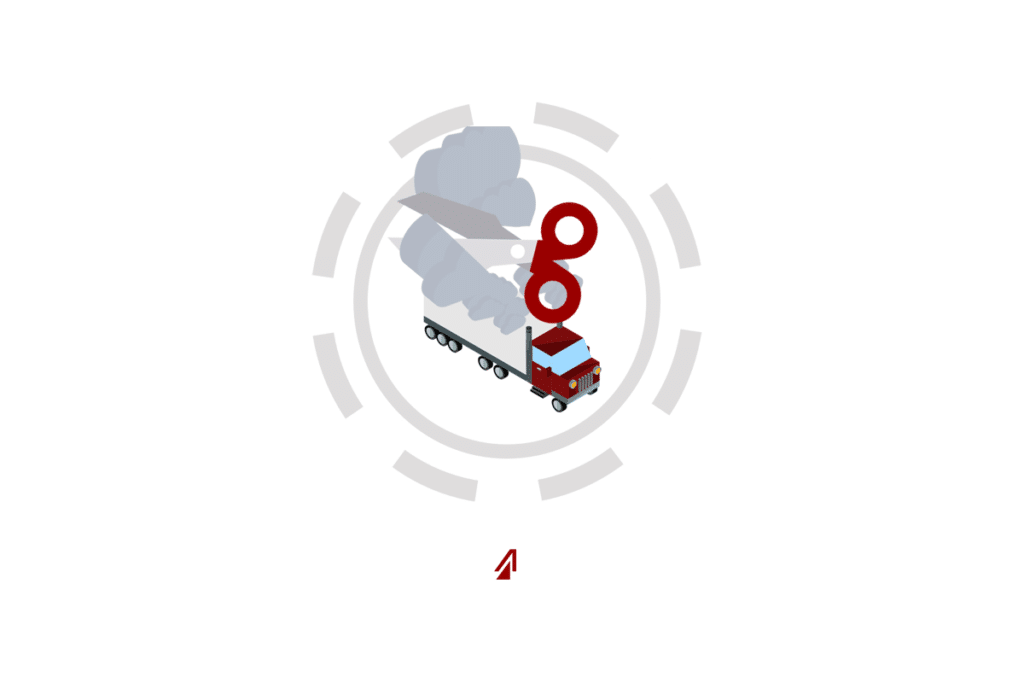One of the largest sustainability concerns for logistics companies today is carbon emissions and harmful greenhouse gases. According to the EPA and other watchdog groups, the United States transportation industry accounts for 50% of nitrous oxide gas and 25% of harmful greenhouse gas the US releases into the atmosphere. Many transportation companies today are looking for ways to reduce their carbon footprint (and save money in the process). One of the best solutions for this, today, is the implementation of renewable natural gas; and companies like Clean Energy Fuels (Nasdaq: CLNE) are ready to help carriers cut “carbs” and save money.
What Initiative is Clean Energy Fuels Undertaking?
In July 2018, Clean Energy announced that they were launching a new program called Zero Now Financing geared at incentivizing companies to run cleaner fuels in their vehicles. The program is a $100 million credit support system for carriers leasing or purchasing vehicles that allows carriers to spend the same for new, fuel efficient, and clean vehicles as they would for traditional diesel fuel vehicles. A wide variety of truck models and brands are eligible as long as they are equipped with Cummins Westport ISX12N engine and run compressed or liquefied natural gas.
In addition, Clean Energy offers fixed fuel rate incentives for those who qualify for the terms of the lease/finance. Andrew J Littlefair, President and CEO of Clean Energy hopes that the initiative will “significantly reduce the environmental impact of heavy-duty trucking and widen the adoption of natural gas as a clean, American-made fuel” as well as “[win] more business.” Clean Energy is backed by energy giant, Total S.A. (CAC: TOTF. PA), as well as other well-known financial institutions.
Sustainability Benefits
Current dirty diesel engines use approximately 355 million gallons of fuel in the US every day. That produces roughly 1,923 million metric tons of greenhouse gas emissions each year with over 442 million metric tons produced from logistics vehicles (Medium- and Heavy-duty). Carriers looking to reduce their carbon footprint are turning to responsible, renewable, low-emission options like renewable natural gas. This gas comes from reservoirs beneath the earth’s surface and is composed of decayed organic matter. However, with modern technology, this gas is an equally efficient fuel source for vehicles, but with approximately 70% less carbon emissions.
Clean Energy has long offered a natural gas product called Redeem. It is made from naturally occurring methane from organic waste is 70% cleaner than traditional diesel fuel emissions. In fact, when run in the CWI ISX12N, it produces nearly 90% less carbon emission than the current EPA standard. The EPA and California Air Resources Board certified these engines at 0.02 g/bhp-hr in 2017, and at 0.01 g/bhp-hr more recently. That is practically zero tailpipe emissions – making Redeem the cleanest fuel in North America.
Currently, there are 130,000 natural gas vehicles on the road in the US, but Clean Energy is pushing to grow that number significantly.
Economic Benefits
Not only are natural gas incentives like Zero Now Financing good for the environment, they are good for businesses’ bottom line as well. This financing option, as stated before, aims to make buying or leasing a natural gas truck as cost effective as traditional diesel vehicles. Also, as a part of the campaign, participants are offered Redeem fuel for the lowered price of $1/gallon. At a time when fuel in California is constantly at $3.75/gallon, Zero Now participants are granted huge savings. Greg Roche, Clean Energy’s vice president of sustainable trucking, says, “At a time when the price of dirty diesel is bumping up to $3.75 a gallon in California, paying only $1 a gallon for a year for Redeem can go a long way to recouping the cost of a new truck.”
In addition to the upfront fuel costs, and reduction in financing, government institutions, like the State of California, offer clean truck purchasers various grants and sponsorships. One of the best parts – purchasers do not need to navigate the application process alone. Clean Energy has dedicated team members ready to help buyers apply for the grants and receive the benefits. This makes it easier than ever to purchase a new, fuel-efficient vehicle.
Economic Why Clean Energy Fuels?
Clean Energy is the leading North American distributor of natural gas. They currently have a three-pronged sustainability goal.
1. Economic – combat high fuel prices with cheaper, cleaner natural gas options. Natural gas is renewable as well as easier to harvest, process, and transport than traditional fuel. Making the cost of production less allows Clean Energy to pass on the savings to the consumers.
2. Energy – it is domestically harvested and processed. This diminishes dependence on foreign fuel sources and grows the domestic economy.
3. Environment – Significantly fewer carbon emissions. Natural gas is cleaner than traditional fuel, but is as powerful a combustor as diesel or gasoline.
So, while many companies are looking for cleaner, more sustainable options for their vehicles; Clean Energy has the solution. They offer clean, fuel and efficient products like Redeem, to help carriers reduce traditional dirty diesel fuel dependence and create 70% less harmful greenhouse gas emissions. Also they help companies’ bottom lines through initiatives like Zero Now Financing that help get more clean vehicles on the road. If companies are looking for ways to be more sustainable, they can start by pairing with Clean Energy and cut “carbs”.



